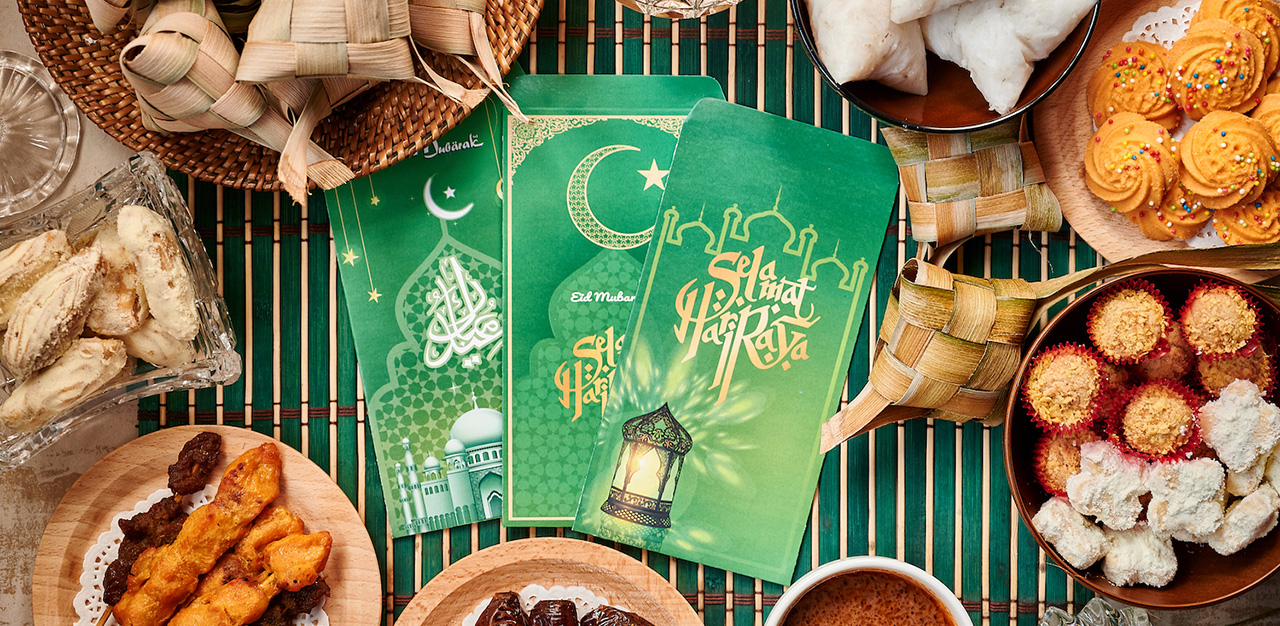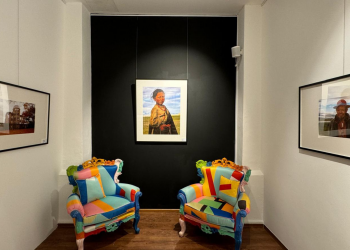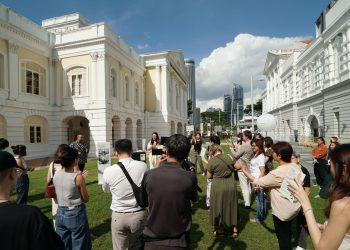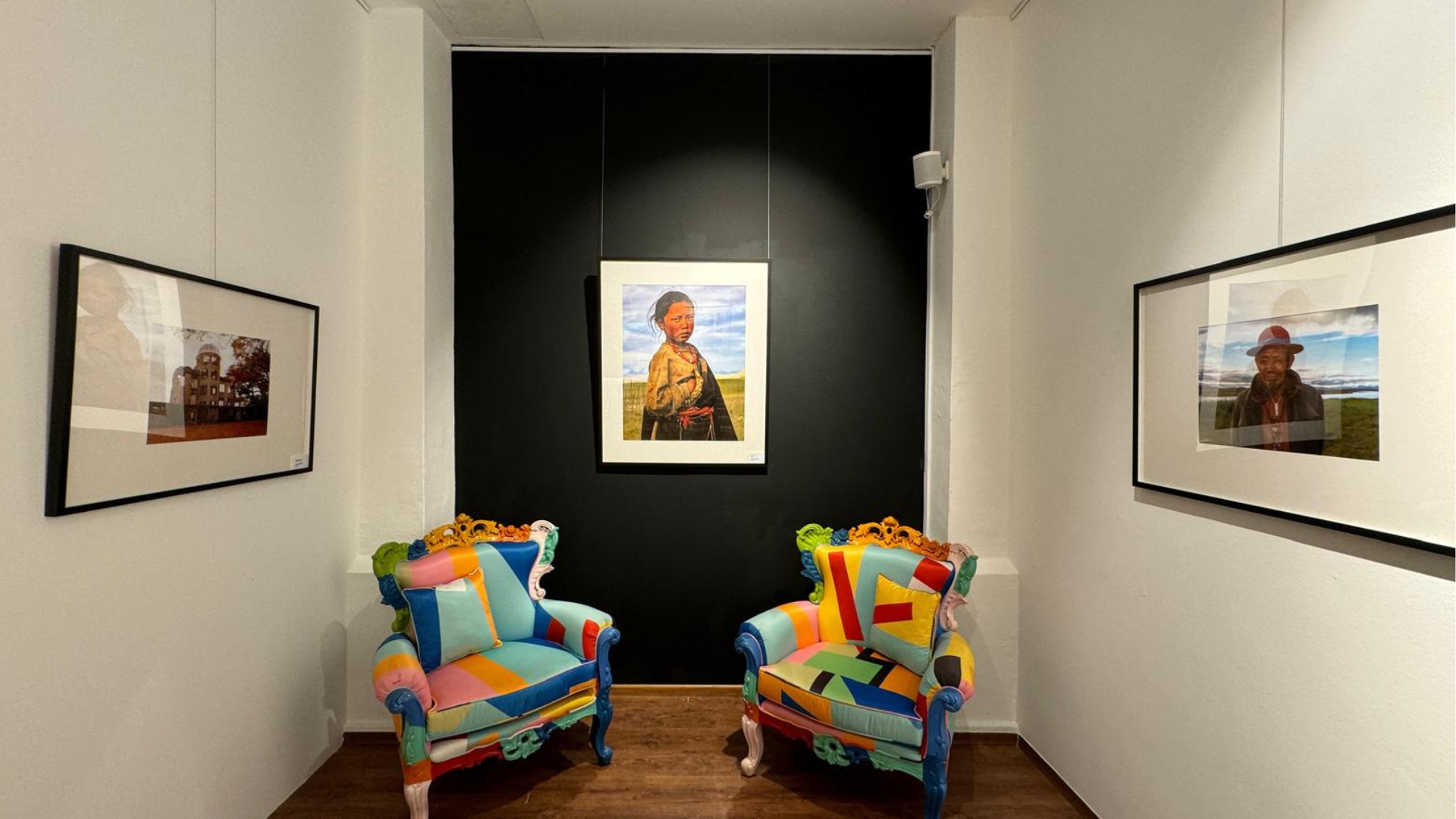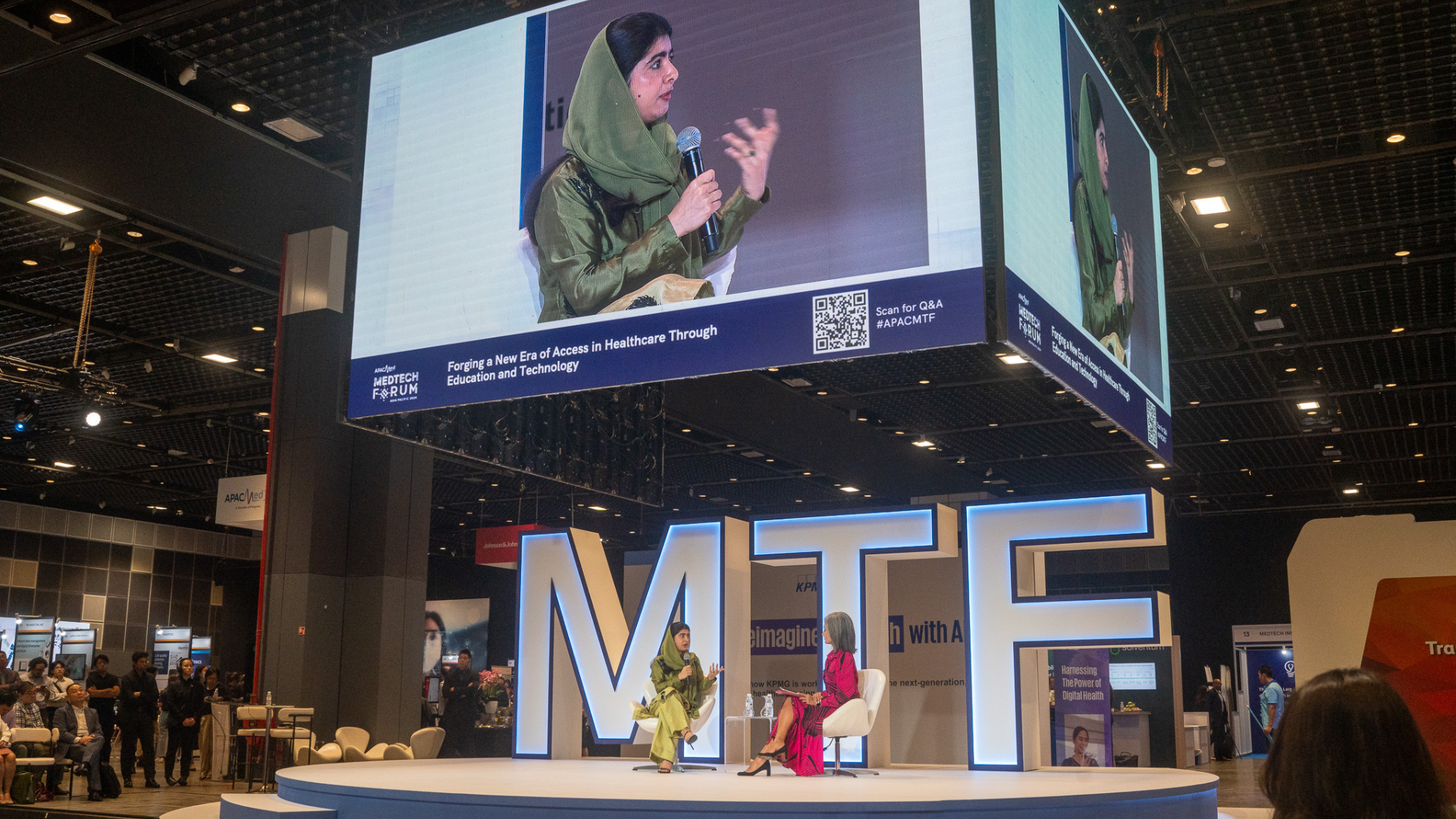TheHomeGround Asia wishes all our Muslim readers Selamat Hari Raya Aidilfitri, as we ring in the season of Hari Raya with the stories of five Singaporeans and their families celebrating one of the most significant events in the Muslim calendar. Spending the second Hari Raya in a row during a global pandemic, we find out how these individuals feel about the recent restrictions on social gatherings, especially during a time of the year where families usually gather to usher in the festival of Eid.
Just when Muslims in Singapore thought they might possibly return to a semi-normal Hari Raya in 2021, they were hit with two pieces of news during their preparations for the end of the Islamic holy month of Ramadan, which have once again affected the celebratory norm of visiting the homes of relatives and friends.
The first came midway through the Muslim fasting month of Ramadan. Amid rising Covid-19 cases, the Government implemented a cap of five people, down from eight, for social gatherings and advised residents to have two or fewer social gatherings per day from 8 May onwards.
A second blow was dealt on the second day of Hari Raya: from 16 May, households will not be allowed to receive more than two distinct visitors per day and should continue to cap social gatherings at two a day.
Five Muslims share how they are experiencing this year’s celebrations and keeping the spirit of Hari Raya alive, amid an ongoing pandemic.
Meet Shahirah Azman and family
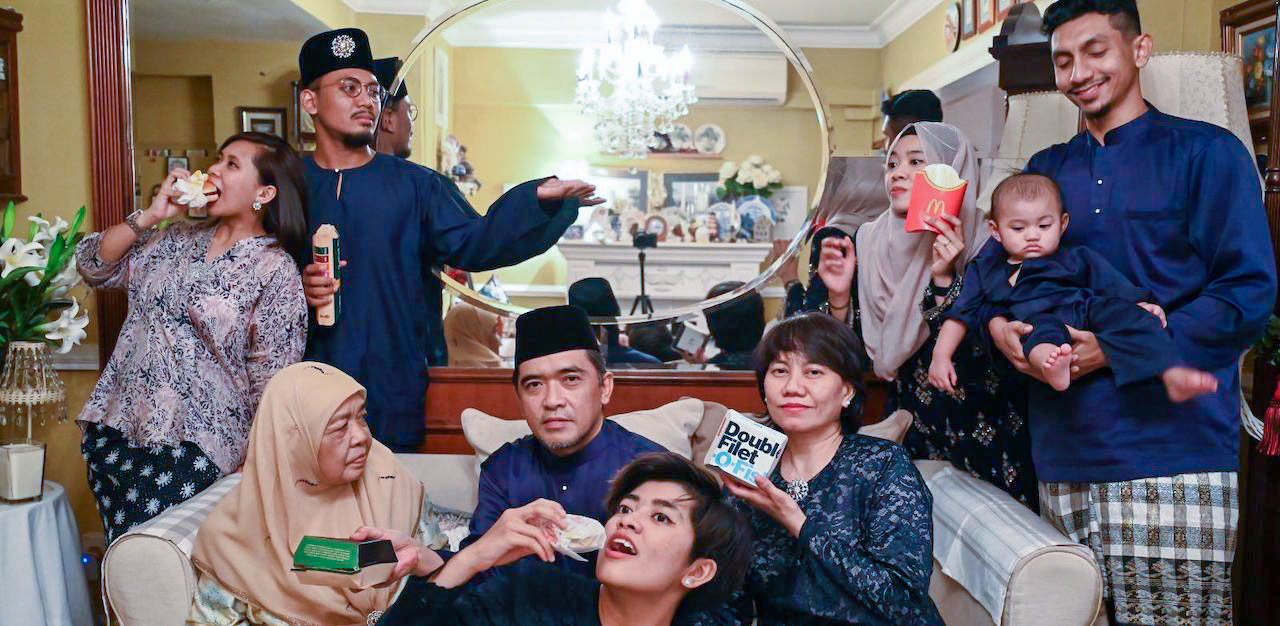
For 28-year-old Shahirah Azman, Hari Raya is always a day she looks forward to and food plays a central role in the yearly celebration.
Her family plans for Hari Raya way in advance. There are the kuihs – which like good baju kurungs are “hard to come by especially if they’re in demand” – so purchasing those must be done early, she says.
The rest of the food preparation takes place just before Hari Raya, where long hours are spent in the kitchen making ketupat (rice dumpling wrapped in coconut leaf) from scratch and cooking up quintessential dishes like kuah lodeh (mixed vegetables in coconut broth), sambal goreng pengantin (spicy meat stir fry), sambal telur (egg in spicy gravy), sambal sotong (squid in spicy gravy), and serunding (spicy fried coconut flakes).
The family digs into the feast on the eve of Hari Raya upon breaking their final fast, a tradition normally done in silence, as they listen to the sounds of the takbir and remember loved ones who have passed on. Last year, these dishes made up for their quiet celebrations during phase two of Singapore’s circuit breaker, which Ms Shahirah says “almost felt like it wasn’t [Hari] Raya.”
This year will be different as well – but in a good way – as she spends her first Hari Raya as a married couple, which involves her and her husband seeking forgiveness from each other, having a new family to visit and the first time she will make the rounds without her nuclear family. But Ms Shahirah believes that despite the social gathering restrictions, celebrating Hari Raya is an opportunity to strengthen familial ties that should not be passed up.
“Making do with the situation has always been something instilled in us as a family… We’re grateful that we managed to complete [visiting] the family circle within that limitation.”
And to top off a day of laughter and joy, Ms Shahirah indulges in a yearly tradition of having a fun, family photoshoot in the house to capture the good memories.
“We love taking photos as we have so much fun at it, sometimes only ending our first day of [Hari] Raya at 1.30 am,” she says.
Meet Nazlina Abu Bakar and family
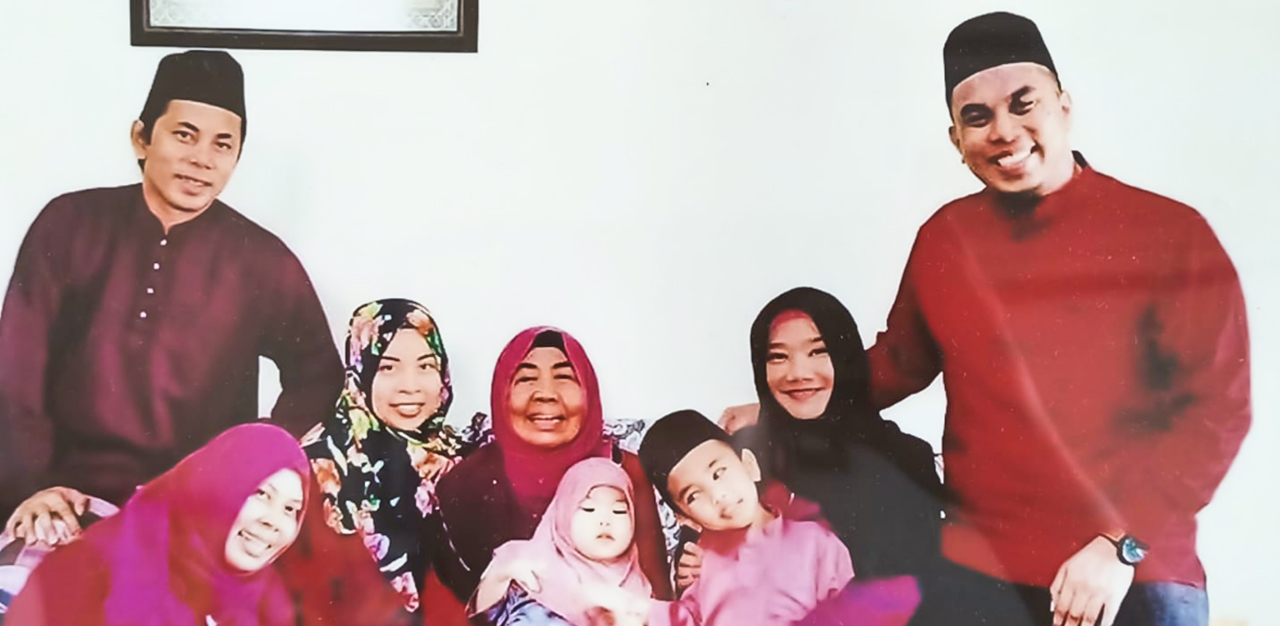
One hundred and fifty guests in three days – that is the usual volume of visitors to Nazlina Abu Bakar’s household every time a long weekend of Hari Raya comes around.
“Normally if Raya is on a Friday or weekend, we’ll receive up to 30 guests. The next day the number increases to 40 or 50, and on the third day it jumps to a maximum of 80. So the first three days are back-to-back welcoming of guests,” shares Ms Nazlina.
The 44-year-old caregiver, who lives in Siglap, in eastern Singapore with her elderly mother and three siblings, is getting used to the change from the lively scene at her home on Hari Raya. Last year, for the first time, her family had no visitors and instead, they went out to visit their closest relatives.
This year, anticipating another quiet celebration, Ms Nazlina decided to make full use of the family’s SingapoRediscovers vouchers and booked a five-day staycation. Her family left for the hotel on the second day of Hari Raya, after receiving no visitors on the first day, but was “not surprised” with the turnout.
For Ms Nazlina, Hari Raya signifies a time of proper reflection, seeking forgiveness from parents and family members and making amends to tighten existing bonds within family, and the safety restrictions do not take away from this.
She says that family and friends were “sad, disappointed and truly frustrated” upon hearing the Government announcement regarding limited social gathering measures. But she asks, “What can we do? What is left is just to spend time and catch up with our family.”
Meet Tina Safari and family
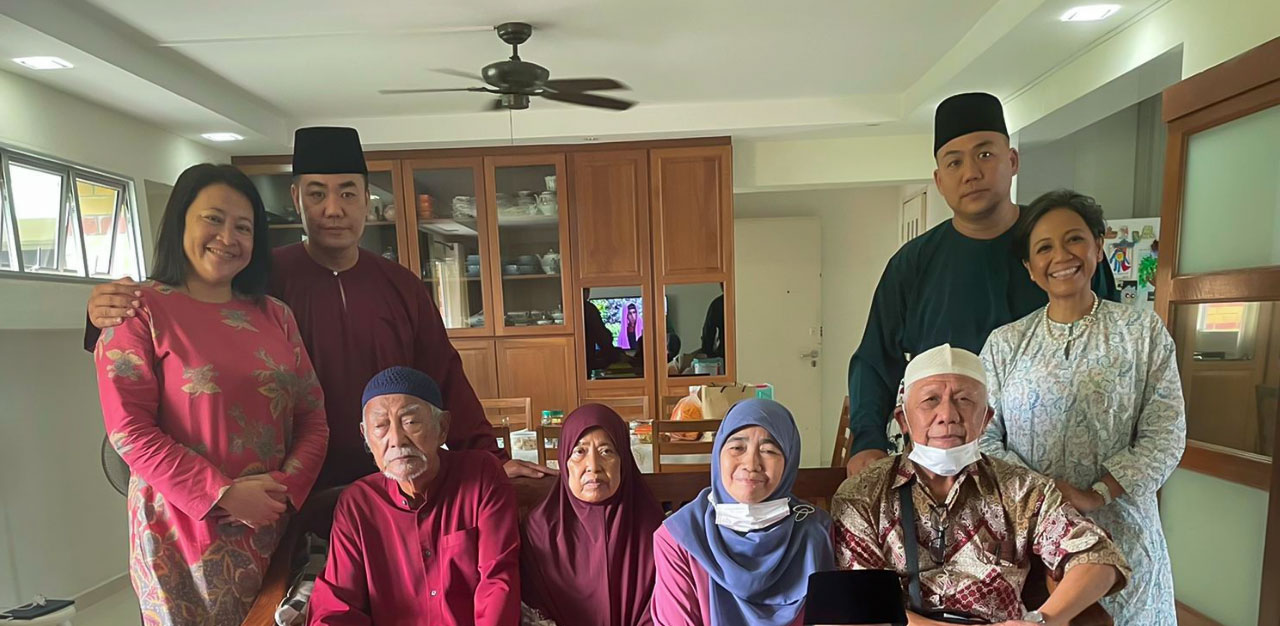
The updated social gathering rules that came in the middle of Ramadan meant Hari Raya plans had to be tweaked. For tutor Tina Safari, the usual whole-day affair of visiting six to seven houses on the first day had to be cancelled.
To adhere to the guidelines, Mdm Tina planned to receive guests to her home at staggered timings and also coordinated her family’s visits to relatives’ homes. Conducting Zoom sessions was also a possible alternative to connecting with those she could not meet in person.
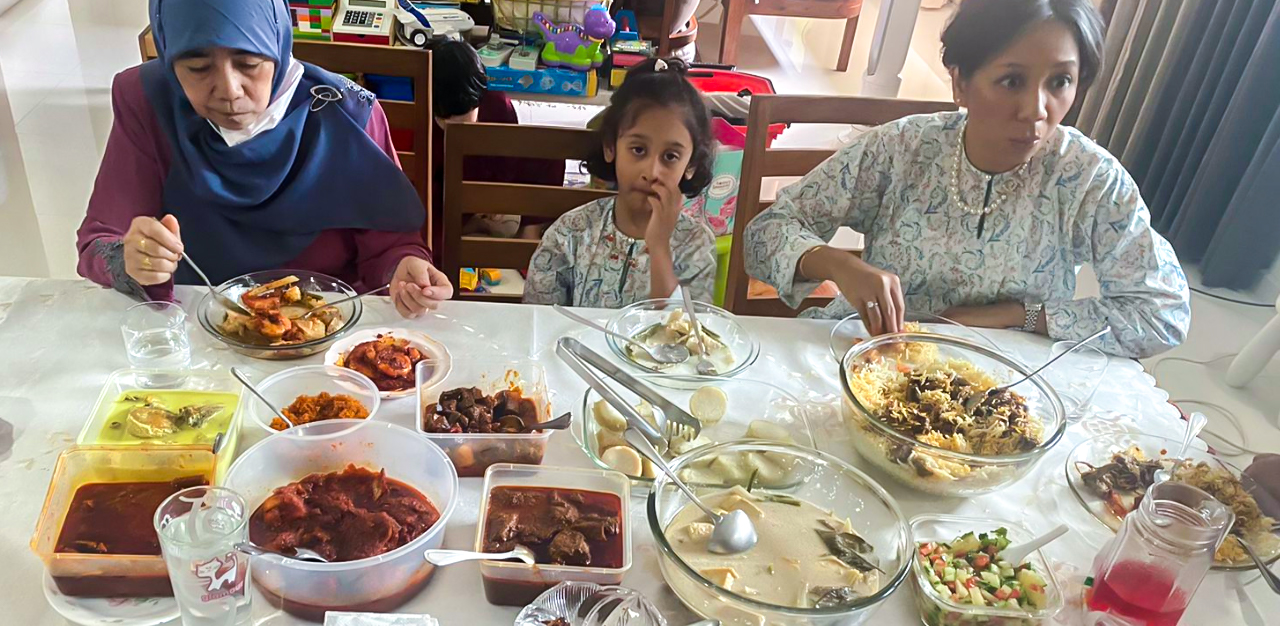
The 46-year-old mother of three, who believes Hari Raya is a time to catch up with family, eat great food and make memories, shares: “I cannot visit with my whole [extended] family, so I would have to visit only the elders with my mum or husband. But I am likely to cut down the number of visits as the whole idea is to stay home and stay safe.”
Despite feeling “disappointed” with the stricter rules, Mdm Tina “understood that it was for the greater good” and found this year’s celebration enjoyable.
“Still cooked up a feast. Still did our traditional minta maaf (seeking forgiveness) so, to a large extent, the spirit and significance [of Hari Raya] was experienced,” she explains.
Nothing is quite the same though. “I will not be able to meet my aunts and uncles. I miss that.”
Meet Ashraf Anwar and family
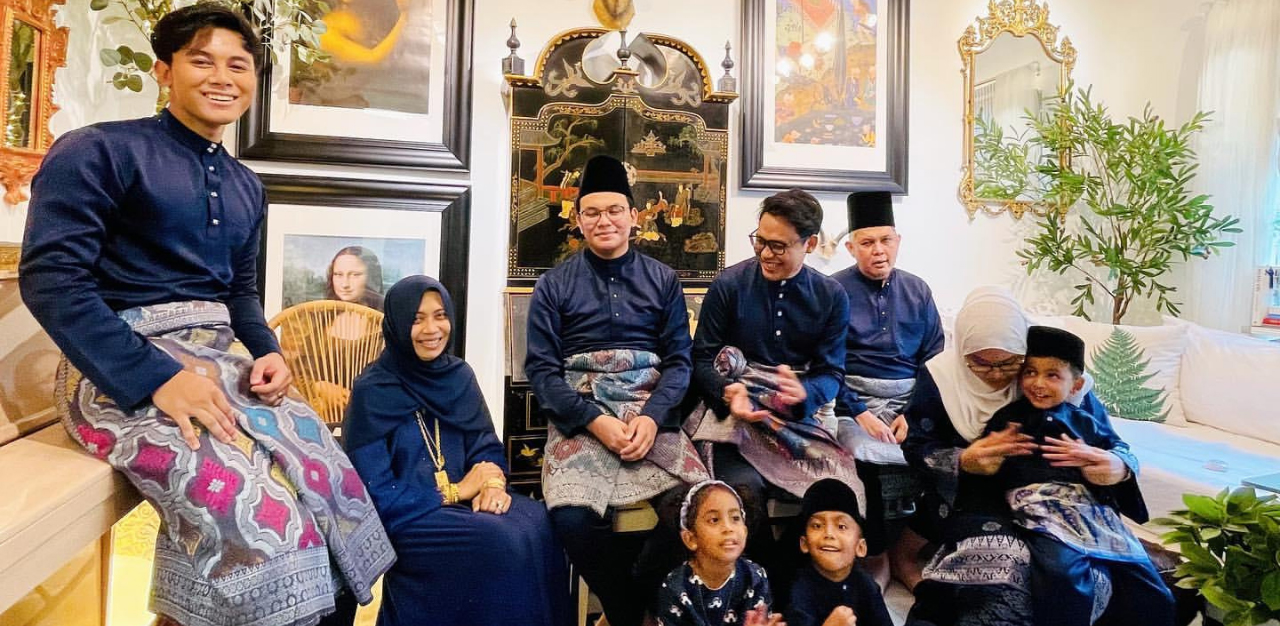
A glimpse at Ashraf Anwar’s family portrait reveals a family that takes its Hari Raya outfits seriously. A yearly tradition, the Anwars don matching coloured, bespoke outfits to reflect their family’s synergy.
But for the 28-year-old Islamic graduate and manager of OnePeople.Sg, the essence of Hari Raya goes beyond wearing matching clothes – he believes that the core of the occasion is the rekindling of relationships with loved ones, especially the older generation.
He shares about his father’s elderly siblings: “Some are living by themselves and are waiting for visitors to meet them and ask about their well-being. Such interactions are meaningful and intimate for them.”
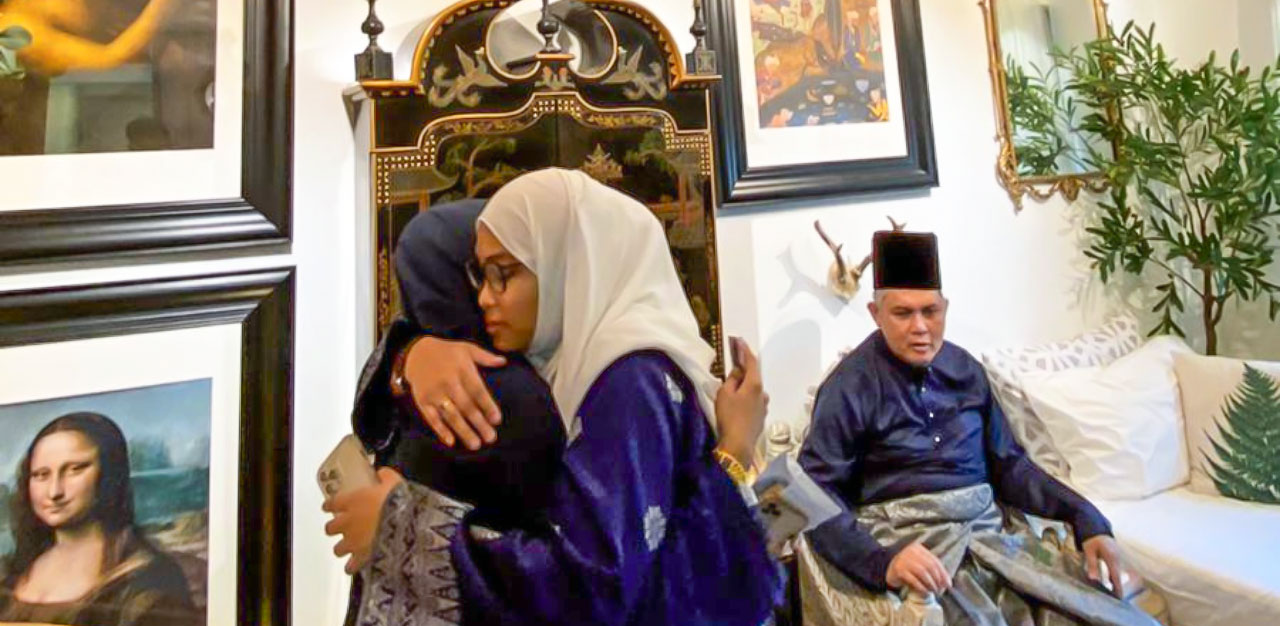
Despite feeling sad and disappointed at the news of the restrictions, Mr Ashraf is grateful at any opportunity to visit loved ones, even if it means heading out in twos instead of a group of five or eight, as he is able to cherish the face-to-face interactions even more.
The spiritual aspect of the holiday also plays a central role for this interfaith practitioner. Hari Raya Eve is usually spent reciting the takbir, carrying out his role as a mosque board member to assist in operations at the mosque, emulating prophetic traditions of making du’a (supplication), and replying to the well-wishes of his friends of other faiths, including Bishop Terry Kee, Rabbi Mordechai Abergel, Master Wei Yi, and Venerable Shi You Guang.
Celebrations during the Covid-19 pandemic has also allowed him to reflect on how he practises and views religion, explaining that it as neither “static nor dogmatic”.
“From every aspect to living as a progressive Muslim, the pandemic has given us the opportunity to explore and discover the traditions of the Islamic corpus; that there is rukhsah (concession) taking into consideration the realities of life,” says Mr Ashraf.
Meet Ridzal Saat and family
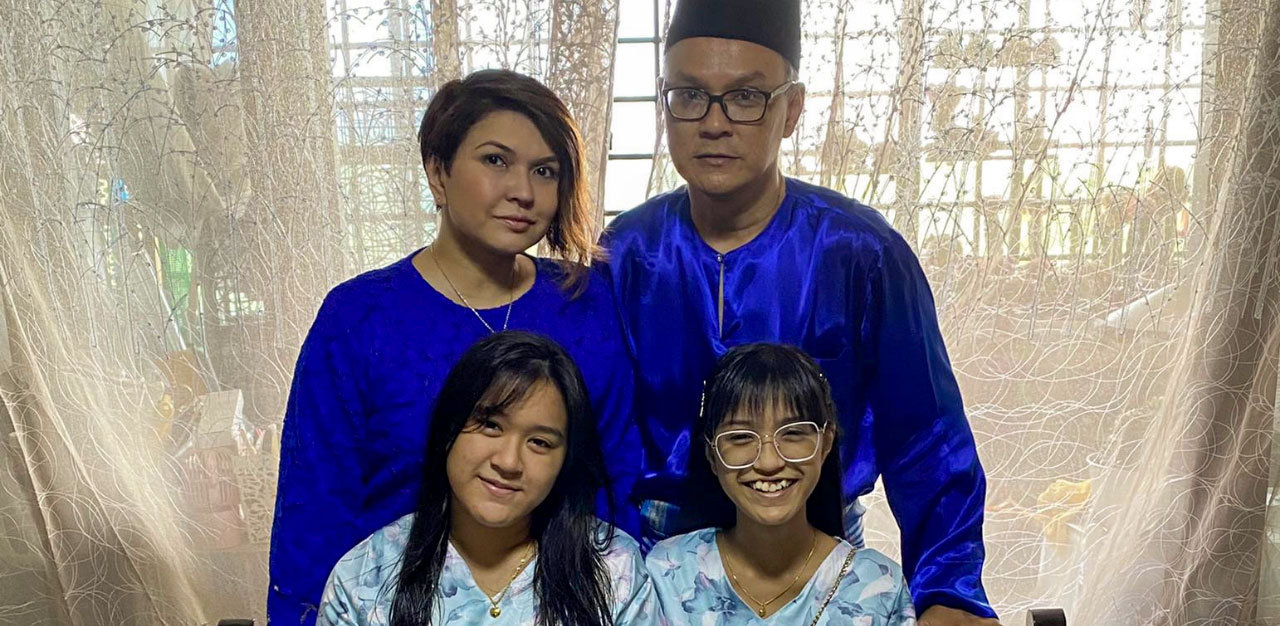
When sharing about Hari Raya traditions, Ridzal Saat cannot help but bring up Bussorah Street – a place of historical significance for his extended family and sparks many memories.
“My parents grew up as immediate neighbours on Bussorah Street. Both sets of grandparents were neighbours and our uncles and aunts lived on the street up to mid-to-late 80s,” he reminisces.
“For as long as I can remember, I have been doing my [Eid] prayers at Bussorah Street. All my brothers and dad would go there and we would meet up with all my first, second and third cousins after prayers. The last we did this was in 2019, of course,” he continues.
Born into a massive family of 14 siblings, Hari Raya is typically a series of open houses for 49-year-old Mr Ridzal.
On the holiday itself, he would have brought his wife and two daughters to his parents’ flat in Marine Terrace, where his siblings and their families would converge, before heading to his in-laws.
The subsequent days and weeks will be spent at each siblings’ home, where they open their doors to guests for the day. Being the youngest of the bunch, his house is usually visited at the tail-end of the celebration.
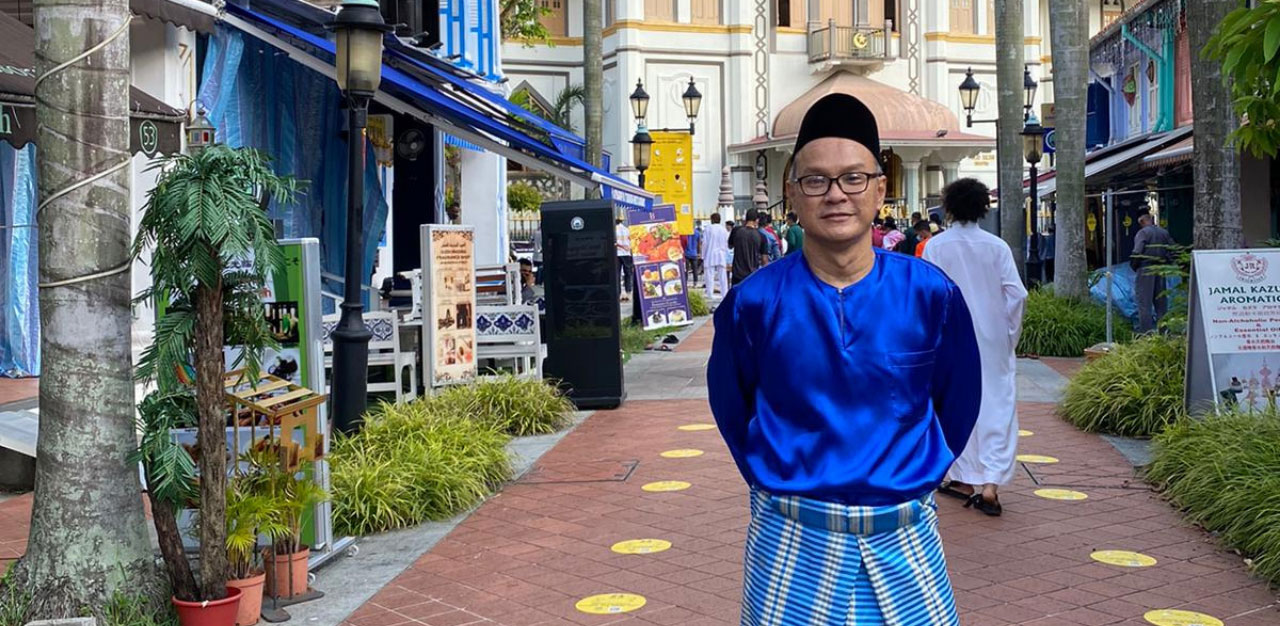
This year’s plans are a drastic change to the norm, intended to keep in line with the social gathering restrictions. He shares that he plans to visit his siblings during the day when his children are at school.
“Just me and the wife. Maybe [visit] one or two siblings a day over the next week or so,” he says.
Nonetheless, in honouring his family’s tradition, on the morning of Hari Raya, Mr Ridzal booked a slot for Eid prayer at Masjid Omar Kampong Melaka (Singapore’s oldest mosque), before taking a bus down to Bussorah Street “just to soak in the atmosphere.”
Join the conversations on TheHomeGround Asia’s Facebook and Instagram, and get the latest updates via Telegram.
